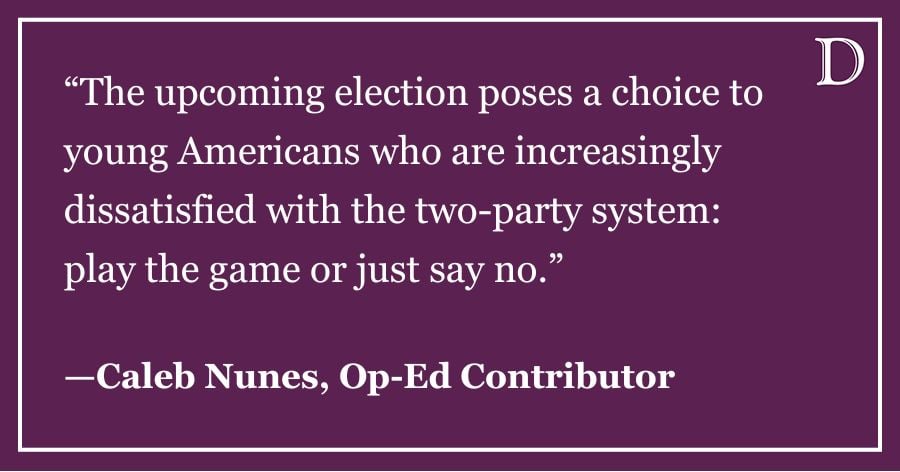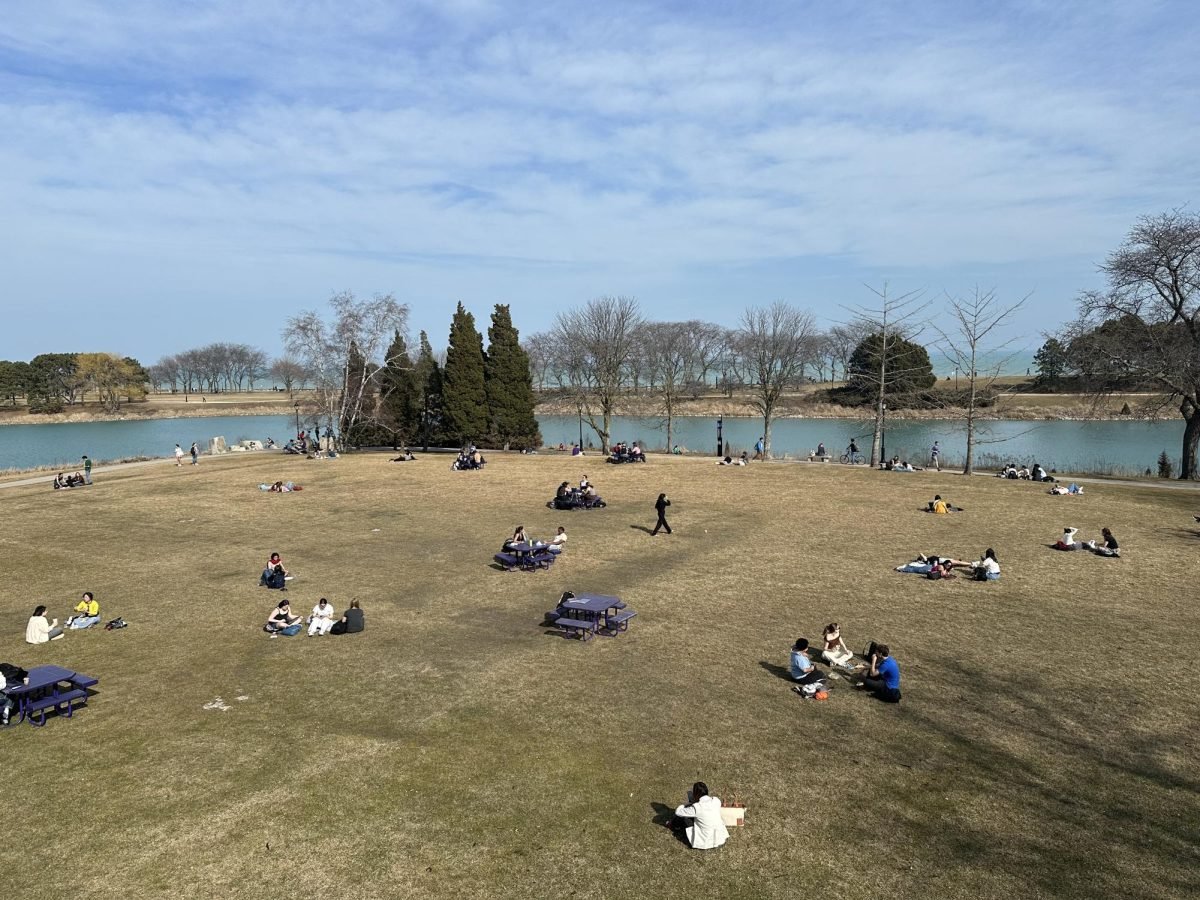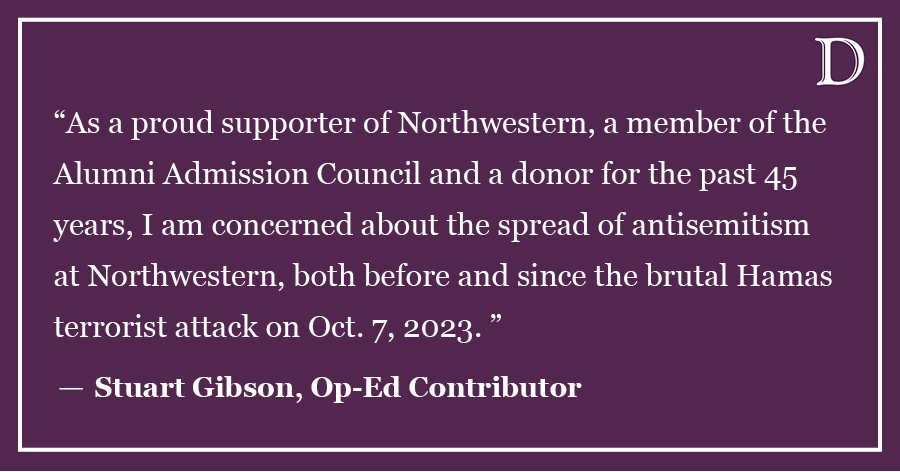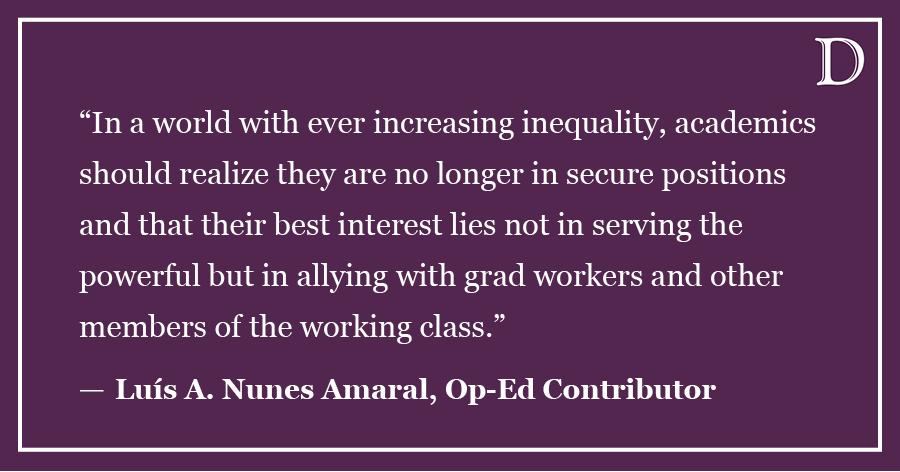Despite my birthplace, we were soon back home and I in the old English school system. All boys, all boarding, all drinkers. I frequented a school-sanctioned bar where students over 16, with parent’s permission, could drink two pints of beer with no teachers around and sport on the television. Two pints was the limit, and it was up to you after that.
But we treated alcohol with respect. There was a Real Ale Society, a Wine-tasting Society, of which I was a member, and they were not jokes – to join you could not have committed an alcohol offense. On my last day of classes, the teachers served champagne.
Evanston is a very different place. Northwestern policy prohibits alcohol on university beaches unless through an organized university event, where all those taking part are ensured to be over 21. So, no spontaneous day at the beach with friends. Or in a park. These rules are meant to decrease littering, public urination and damage to property, according to the Northwestern University Police Department. But aggressively drunk people tend to behave this way whether or not they have an open container in hand. Allowing open containers in certain public areas could give students a designated area for disposing of alcoholic beverages outside of their own homes and decrease potential damage to more residential areas.
During last year’s Dillo Day, I was walking toward the corner of Foster Street and Maple Avenue on a detour to buy cigarettes before returning to the concert. I was with my friend James Walsh – he went through the English school system, was brought up in London, still lives there, grows his hair long until he cuts it for decency’s sake, and plays rugby – all things I do. I told him it was probably not clever to walk the street with an open bottle of beer. He laughed and said, “it’s Dillo Day, mate…this is the one day when they do not give a fuck about us. We are the last thing they care about.”
Apparently not.
Literally moments after he said this, just past Howard’s Books, a white, unmarked car pulled up. Inside were four policemen.
Police Officer: What the fuck do you think you’re doing? (Getting out of vehicle)
Walsh: Er…I was just going round the corner to a friend’s house.
Police Officer: You got ID?
Walsh: Well, yeah, but I’m 20 years old, so you should probably just write me a ticket.
Me: Do you want me to call the others, James?
Police Officer: Hey! Stand over there and don’t you dare say anything.
International students are guests in another country. Burgwell Howard, dean of students at Northwestern says, “we expect students to conform to the laws of the land and the norms of our community.” However, these students may enter with different expectations.
“Many international students come from cultures that do not have the obsession that U.S. culture seems to have with alcohol,” Colleen Seaton, student and exchange visitor information system coordinator at Northwestern’s International Office says. “Generally, because of this dynamic it seems international students are safer and more responsible with alcohol.”
U.S. policies seem alien at best, and unrealistic at worst. Consumption of alcohol among college students is unavoidable due to the separation of ages between those who are 21 and legal, and those who aren’t. According to the U.S. Center for Disease Control and Prevention, 51 percent of 18 to 20 year old drinkers binge drink, the highest of any age group. Younger people hate to be legally withheld from a pastime in which their friends are obviously participating, and so pursue illegal options. Northwestern still obliges the rule of law in its pursuit of underage drinkers inside and outside of dorms. Howard concedes the policy might appear unreasonable.
Underage students will always find a way to get alcohol. A drink in the Evanston summer should not be a backyard event: it should be a day on the beach. If the 26th Amendment allowed 18-year-olds who were fighting in Vietnam to vote, why did they not get the right to drink? Alcohol is no enemy unless abused, just as food is not – unless abused. If a parent is teaching their child how to eat right, why not how to drink right?
This article was created by an affiliate of The Daily Northwestern. The Daily is not responsible for the article’s content. For more information, please contact The Daily’s editor in chief at eic@dailynorthw







